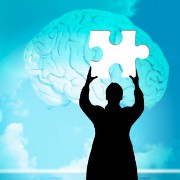She doesn't respond till about 10 minutes. In 20 minutes blood pressure and oxygen are back to normal. In 40 minutes from when the episodes started she's back to her base line and even more alert then usual. They say that's part of her dementia. Maybe Lowey dementia their thinking. What are your thoughts ? I have a meeting with hostpis for extra assistance in the nursing home with this type of dementia. What are your thoughts? She is 86 yrs. old and was diagnosed about 8 years a go. Thank you!
All user-generated information on this site is the opinion of its author only and is not a substitute for medical advice or treatment for any medical conditions. Members and guests are responsible for their own posts and the potential consequences of those posts detailed in our Terms of Service.




Add a Comment1 Comments
Hello Anon
Thank you for writing.
Your mother certainly shows many traits of Lewy. We will explain below.
Lewy body dementia, also known as dementia with Lewy bodies, is a cortical type of dementia. It is the third most common type of progressive dementia after Alzheimer's disease and vascular dementia.
Dementia is a term used to describe a general decline in a person’s cognitive abilities, that is their thinking, memory, language, usually due to disease which results in degeneration of the brain. Lewy body disease is thought to be the second most common kind of dementia and is currently incurable.
Because Lewy body dementia symptoms closely resemble other diseases, it can be particularly difficult to diagnose correctly. This can create problems for the individual affected, as early diagnosis allows for key early treatment that can extend a person’s freedom and quality of life.
Individuals with Lewy body dementia lose cognitive function, which are those functions of the brain associated with language, memory, planning and attention. However they are less likely to have short-term memory loss which is associated with Alzheimer’s disease.
Lewy body dementia sufferers experience more problems with their executive function, which is their ability to be logical, flexible, or to make judgements or decisions to plan, organize and carry out usual day-to-day activities.
Their capacity to concentrate, to multitask, to be alert or react to changing circumstances are affected. So is their ability to cope with noisy environments.
Unlike Alzheimer’s disease, Lewy body dementia sufferers are able to make and retain new memories, recall long-term memories and relate to friends and family well into the late stage of their illness.
Their cognition fluctuates, though, leaving them to experience good and bad days. On good days, at least they are able to have insights and are fully capable of making choices available to them.
Lewy body dementia can take two forms. the first is Dementia with Lewy bodies as described above, the second is Parkinson’s disease dementia. The difference between them is dependent on how the disease begins.
In dementia with Lewy bodies, the individual may begin to show signs of memory disorder that are often mistaken as indications for Alzheimer's disease. However, the individual with Lewy body dementia later develops movement and spontaneous Parkinson’s-like motor symptoms.
Some of these symptoms are slowness of movement, hesitation in walking, rigid muscles, tremor, lack of facial expression, and abnormal gait. Recurrent visual hallucinations or delusions, of detailed shapes, colors, people, or animals is also a feature of the condition. Auditory hallucinations such as hearing knocking or footsteps are less common.
In Parkinson’s disease dementia, the person may initially have a movement disorder that looks like Parkinson's disease, but later the individual also develops dementia symptoms such as memory loss, personality changes and impaired intellectual functioning.
Lewy body dementia develops a range of difficulties that include variations in attention and alertness. It causes a progressive decline in mental abilities which causes people to experience recurrent visual hallucinations.
Other effects include symptoms such as a blank expression, rigid muscles, tremors, and slow movement which closely resemble Parkinson's disease.
Sleep disturbances including insomnia, daytime sleepiness are also signs and symptoms of Lewy body dementia.
Please let us know how things go in your meeting.
October 27, 2017 - 3:38amBest,
Susan
This Comment